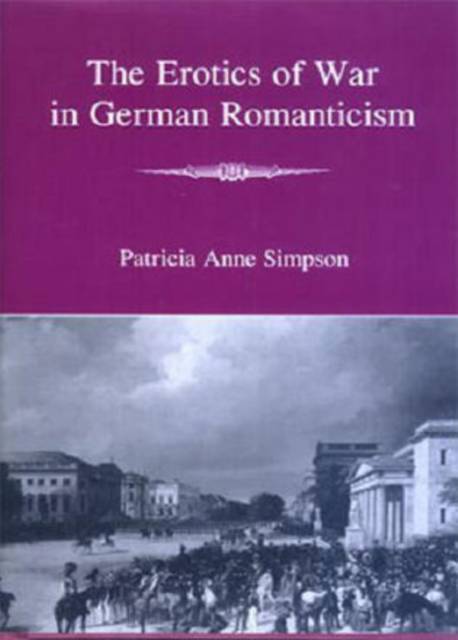
- Afhalen na 1 uur in een winkel met voorraad
- Gratis thuislevering in België vanaf € 30
- Ruim aanbod met 7 miljoen producten
- Afhalen na 1 uur in een winkel met voorraad
- Gratis thuislevering in België vanaf € 30
- Ruim aanbod met 7 miljoen producten
Zoeken
€ 113,45
+ 226 punten
Omschrijving
In The Erotics of War in German Romanticism, Patricia Anne Simpson explores the ways early nineteenth-century German philosophers, poets, and artists represent war and erotic desire. The author argues that gender is connected to a larger debate about the construction of the self in relation to a community at a time that this definition is under revision. She analyzes the culture of war as it shapes the bonds of fraternal, familial, and eventually national identity. Simpson defines the "erotics" of war as discursive attempts to assert the priority of ethical identity and citizenship over individualized desire. The seemingly ancillary problem of female desire emerges not as a marginal issue, but as the focal point of a debate about identity. Casting a wide evidentiary net, this study draws examples from literature, the visual and decorative arts, journalism, and military journals to demonstrate the centrality of war to national discourse in the early nineteenth century.
Specificaties
Betrokkenen
- Auteur(s):
- Uitgeverij:
Inhoud
- Aantal bladzijden:
- 293
- Taal:
- Engels
Eigenschappen
- Productcode (EAN):
- 9781611482676
- Verschijningsdatum:
- 1/12/2006
- Uitvoering:
- Hardcover
- Formaat:
- Genaaid
- Afmetingen:
- 168 mm x 246 mm
- Gewicht:
- 591 g

Alleen bij Standaard Boekhandel
+ 226 punten op je klantenkaart van Standaard Boekhandel
Beoordelingen
We publiceren alleen reviews die voldoen aan de voorwaarden voor reviews. Bekijk onze voorwaarden voor reviews.











